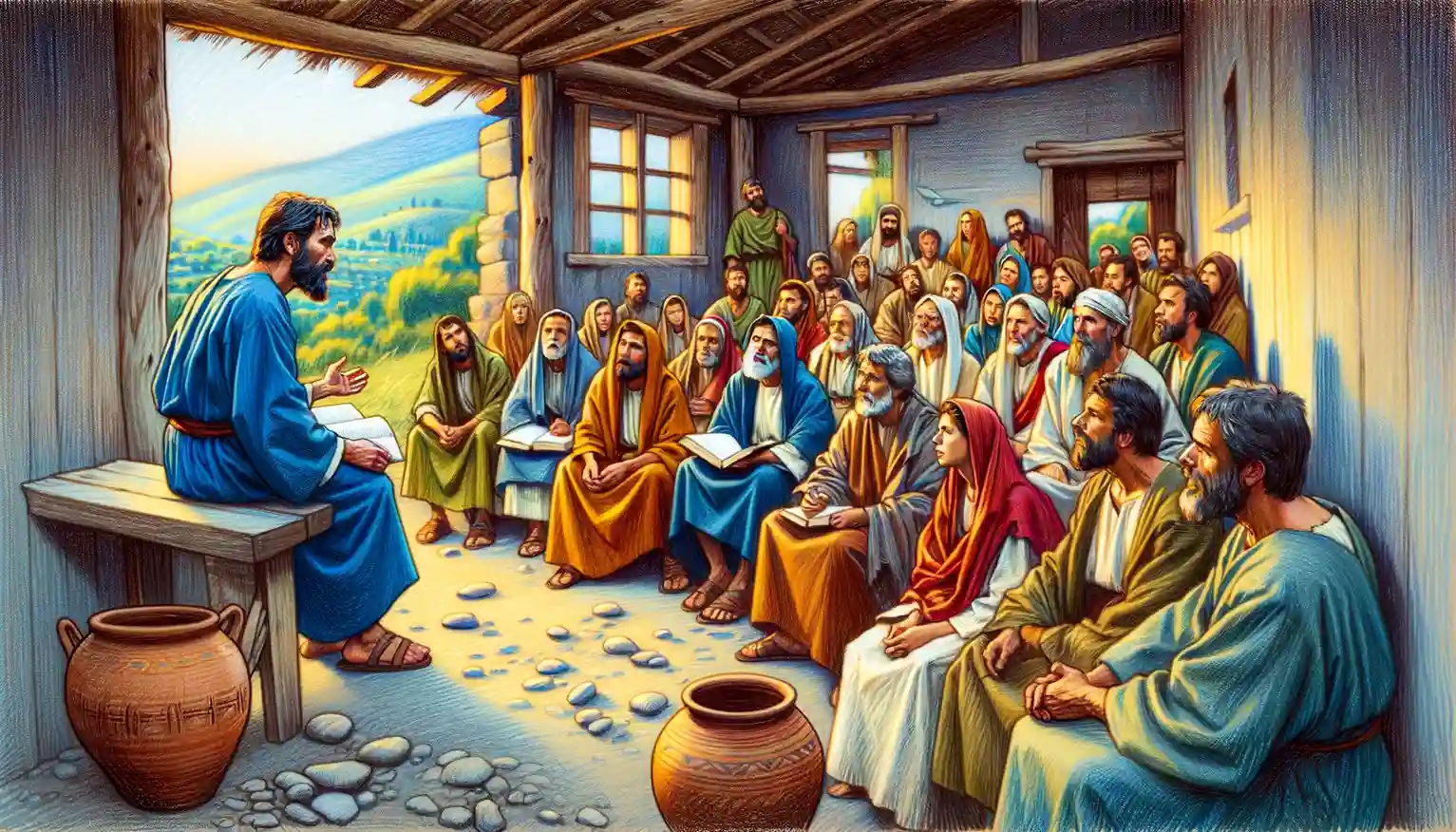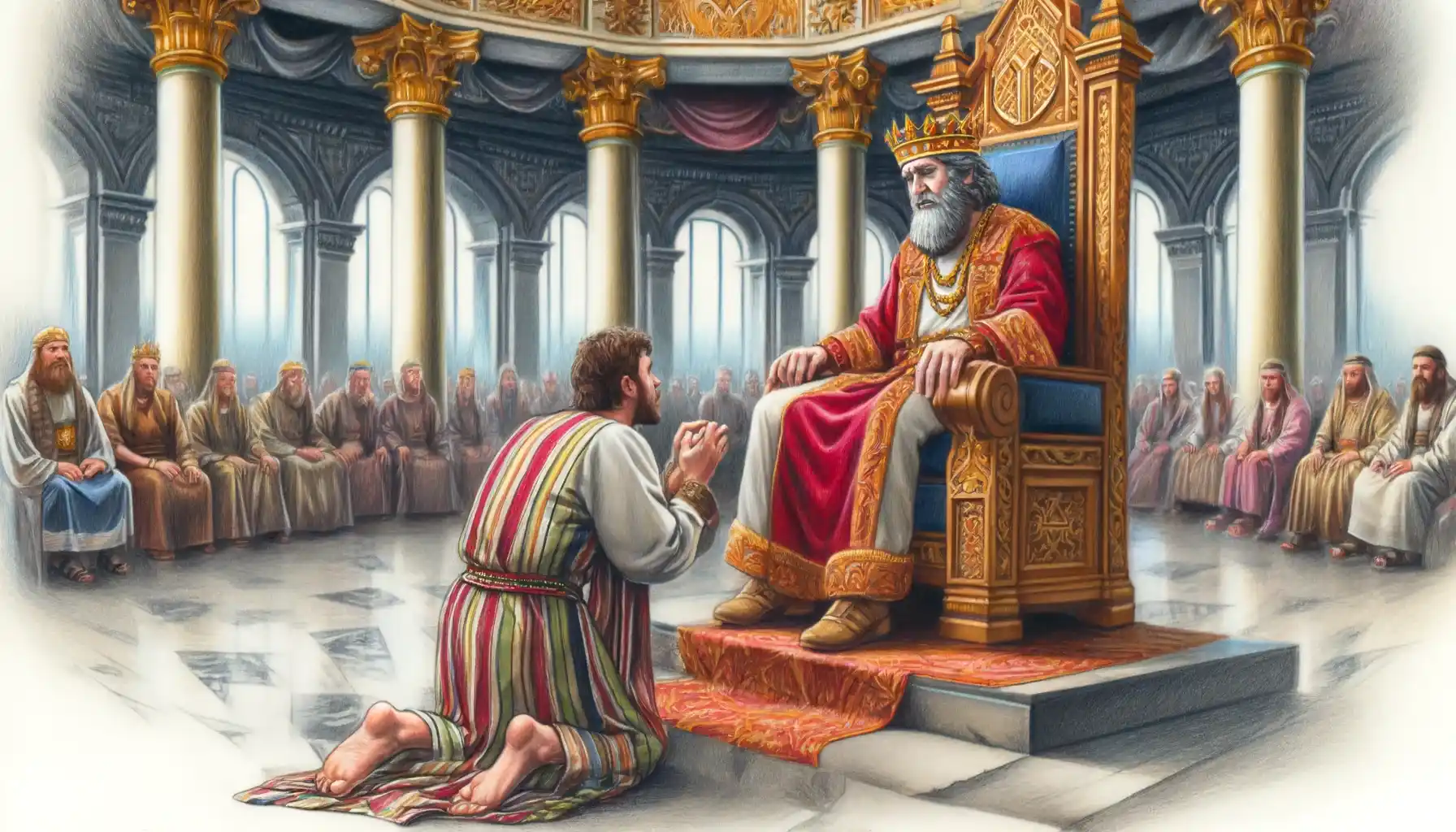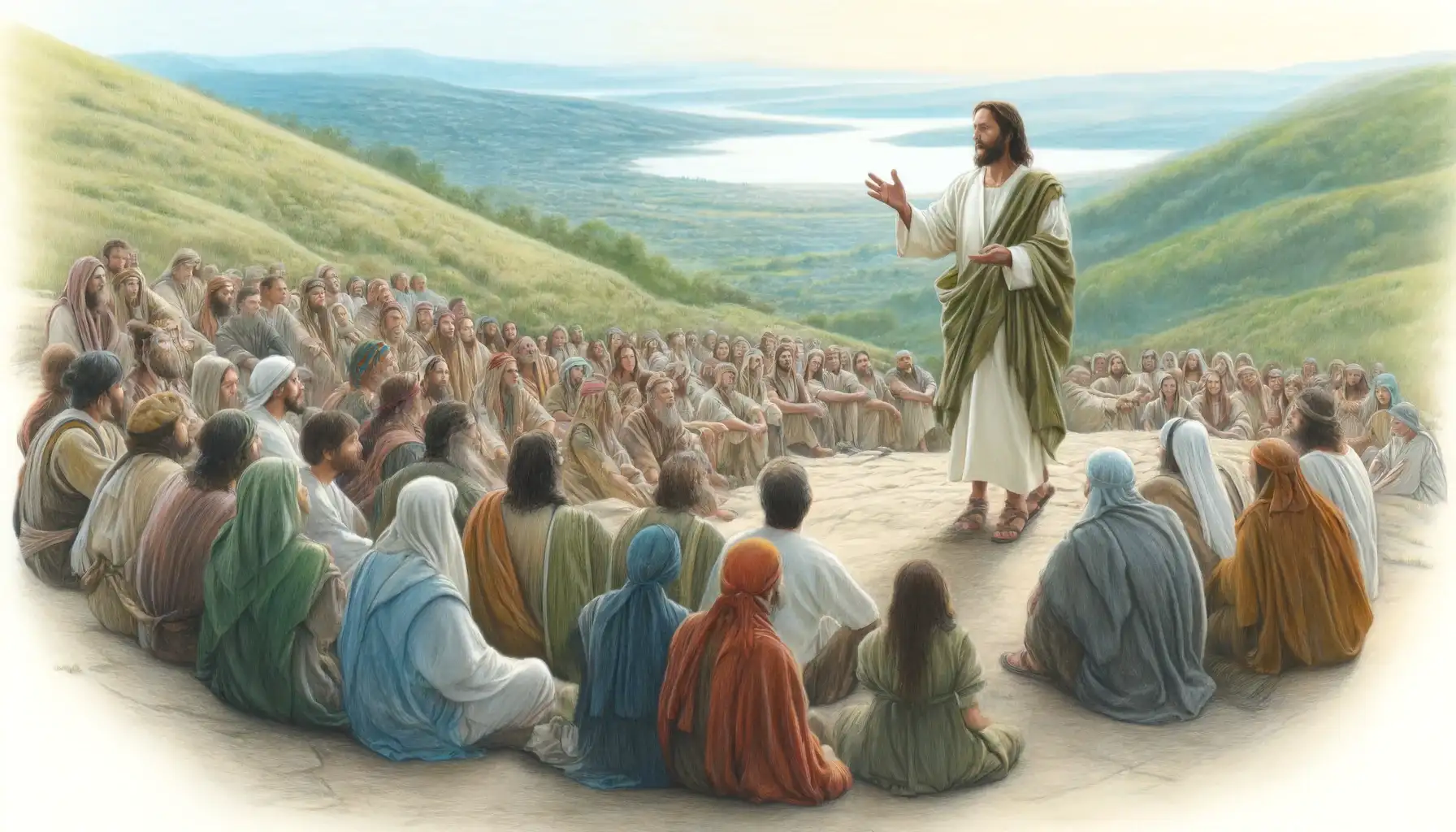The Thessalonians, addressed in the New Testament through First and Second Thessalonians, were an early Christian community in Macedonia’s city of Thessalonica, facing persecution and doctrinal challenges while exhibiting remarkable faith and resilience under the apostolic guidance of Paul.
The Parable of the Unforgiving Servant, as told in Matthew 18:21-35, illustrates Jesus’ teaching on the necessity of boundless forgiveness, depicting a servant who, after being forgiven a massive debt by his king, refuses to forgive a minor debt owed to him by another, leading to his punishment by the king who revokes his mercy in response to the servant’s lack of compassion.
The Beatitudes, as detailed in Matthew 5:3-12, encapsulate Jesus’ profound teachings on the spiritual attitudes that lead to blessedness, revealing the kingdom values of humility, mercy, and righteousness that promise divine comfort and reward.
The Ten Commandments, delivered to Moses on Mount Sinai, serve as a foundational moral and spiritual code in the Bible, establishing principles of worship, ethics, and social behavior that profoundly influence Judaic and Christian traditions and the moral foundations of Western society.
The Sermon on the Mount, as presented in Matthew chapters 5 through 7, encapsulates the essence of Christian ethics and the teachings of Jesus Christ, offering a profound and comprehensive guide that challenges believers to achieve a higher standard of moral and spiritual integrity.





